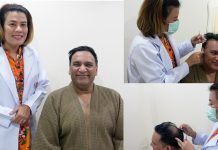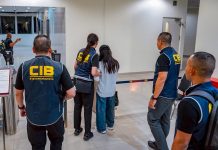In Sangklaburi of Kanchanaburi province, located west of Bangkok along the border of Myanmar and Thailand, this area has become home to various stateless migrants, who fled their previous homes in search for better living conditions on the Thai-side.
Jokadue, a ten-year-old stateless Karen boy, has been living in the Education Center for Hilltribe Children for more than three years. He is getting ready to take a new step to primary 3 level.

After years of studying from monks and respected nuns, the young boy successfully aced the examination, allowing him to continue school in the formal system in primary 3 level. With a heart to learn and develop, Jokadue confidently speaks about his future.
“I want to be a doctor. I want to help others… I have an enjoyable time here at the Centre,” the stateless Karen said.
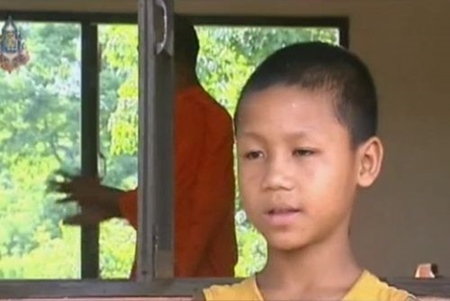
Like many of his classmates and friends, children of immigrant parents appreciate the opportunity to live and learn in the Centre, alongside making new friends and receiving adequate education, at the end of the day, their stomachs are full. Serving up to three meals a day, the Center has increased the standard of living for many children.
“Over here, we get to recite religious prayers, read books, and study. I love to study,” said Kratae, the ten-year-old girl.
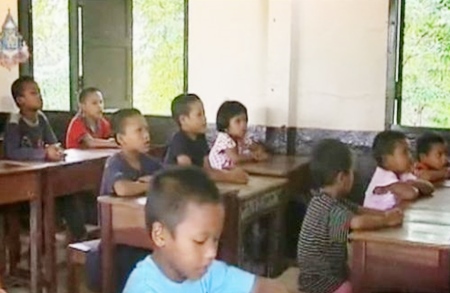
Established close to a decade ago by Buddhist Nun Pimjai Maneerat, the centre initially began within the grounds of Sangklaburi Temple, but due to growing amount of students, it was relocated atop of a hill – on land previously bought by Nun Pimjai Maneerat herself years before she was ordained.
The centre currently accommodates up to 70 students, some with their own individual issues that require
close care and attention. With the help of four monks, it is with great hope that the centre will continue to
open its doors for stateless children to have access to basic human rights such as education, food, and shelter.
With an emphasis on basic reading and writing of Thai, as well as mathematics, students are fostered in an
environment preparing for their next step ahead, which would be enrolling in the Sangklaburi primary school.
Alongside classroom activities, students are also encouraged to study practical life-skill lessons. Teaching
them to grow basic vegetables, Nun Pimjai Maneerat hopes that they will be able to stand on their own feet, regardless of their past backgrounds.
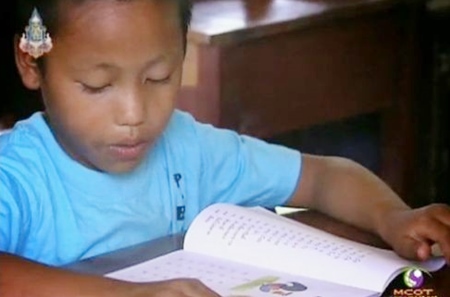
“When these students first came, they were unable to speak any Thai. So gradually, they started to memorise some Thai words, I helped them by learning some Karen dialects, some time we resort to Myanmar language. So through a variety of means, they are able to slowly understand and pick up on what we teach,” said Nun Pimjai.
But with the ever increasing amount of students, the centre faces financial constraints, especially with regards to food. As no state agency officially finances this centre, its livelihood depends on those who support it out of their own will.


